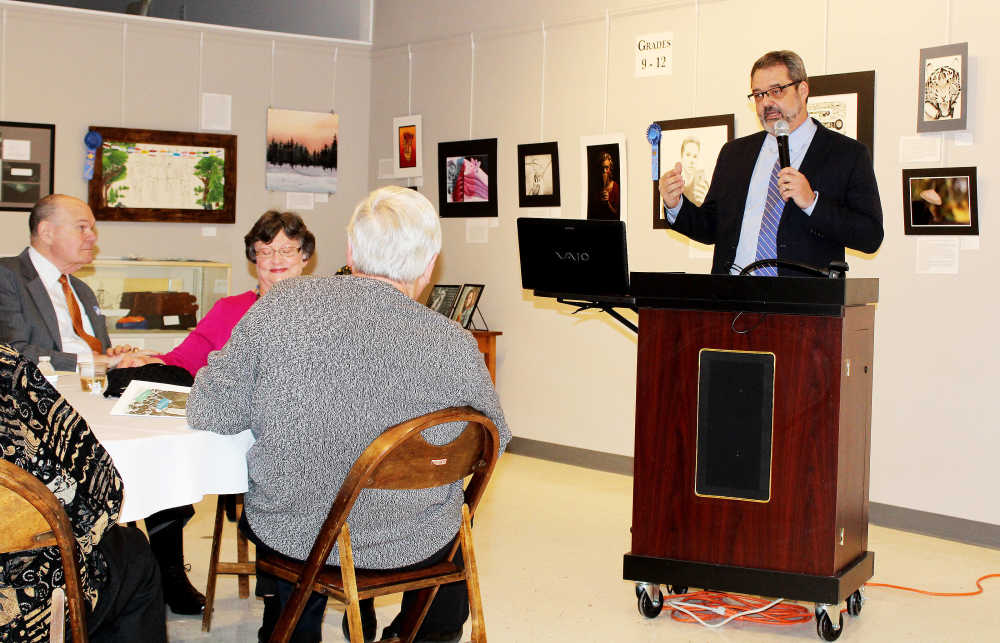Museums, artificial intelligence of future must co-exist, McCoy says

In a world in which the past, present and future seem to be colliding at an ever-accelerating rate, places like the Putnam County Museum are vital to understanding our world, DePauw University President Mark McCoy told the annual meeting of museum members.
“Every time I come in here, I’m amazed to see what something was like ‘in the day,’” McCoy said Sunday afternoon of the museum’s now-permanent home on North Jackson Street in Greencastle. “The museum is doing a great job of preserving that.”
That’s especially true, the DPU president reasoned, in a world now grappling with artificial intelligence and its effect on the future.
“The conversation at DePauw,” he said, “has been that radical changes are right around the corner.”
McCoy drew upon Moore’s Law to illustrate how rapidly change can occur. The crux of Moore’s Law is that every two years since 1971, the average computer chip has become half the size and twice as fast.
To put that in a real-world frame of reference, President McCoy contrasted a 1971 Volkswagen with a 2017 VW as if Moore’s Law were applied to the principles of Fahrvergnügen.
The 2017 VW, after becoming twice as fast and half as costly every two years since 1971, would now be capable of 300,000 mph, get two million miles on a gallon of gasoline and cost four cents to build.
“That seems like the stuff of science fiction,” McCoy assured, noting he disagrees with those that see just a “short window of time” for schools like DePauw to co-exist in a world of artificial intelligence.
Instead, it is going to become increasingly more important, McCoy predicted, to “teach people to work alongside artificial intelligence.”
“We need to teach people about what it’s like to be human -- and that’s liberal arts education.”
McCoy turned to Walt Whitman and his legendary “Leaves of Grass” collection of poems to tie together the place of the museum and its members in our existence.
He read: “The question, O me! So sad, recurring -- What good amid these, O me, O life?”
In other words, the big question: “Why life generally, and why me specifically,” McCoy said.
Then “The answer.”
“That you are here -- that life exists and identity; that the powerful play goes on and you will contribute a verse,” McCoy said, quoting Whitman.
He then added his own inspirational ending for the museum folks.
“The truth is the powerful play goes on, and each of us contributes a verse,” he said, speaking directly to the museum members, “and you’re making sure it goes on ...”
